8 Basic Autism Signs - detecting children at risk of autism early age
Public awareness and early detection. Identifying children at risk of autism as early as 6 to 30 months of age could be a life-changer.
In this article you will read about, Some recent studies suggest that, with early intervention, as many as 1 in 5 kids on the autism spectrum can recover to the point where they are no longer considered autistic. Behavioral, occupational and speech therapies may make the difference, and the key it’s the timing! Detecting children at risk of autism as early as 6, 9, 12, 18, 24 and 30 months of age could be a life-changer, but most children with some form of autism are diagnosed at 5 or older, too late to benefit from early behavioral intervention.
SIGN 1 | First 6 months: No big smiles or other warm, joyful expressions.
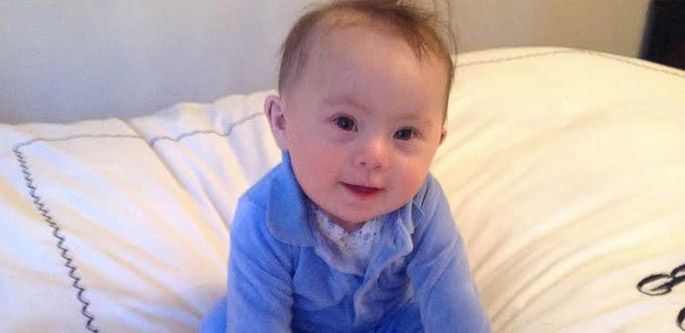
Infants typically smile when smiled at, but babies with developmental delays often don't respond to smiles from caregivers. Diagnosing autism early helps children get the services they need to help them achieve their highest level of functioning.
Did you ever smile at a baby and he gives you a great big toothless grin back? By a certain age, most babies respond to a facial expression or a smile, especially from a parent. Typically, babies start to laugh and squeal by around six months of age. But it is also important to understand, some babies are all smiles while others are a little more subdued. Variations in how much a baby smiles are also normal. In addition, babies start showing joyful expression at different ages. But if your baby is not smiling by about six months of age or laughing in response to your playfulness by a year, it can be an early sign of autism.
Other Sign to watch on this period
He or She doesn't respond to loud noises.
He or She doesn't follow moving objects with her eyes.
He or She doesn't grasp and hold objects.
SIGN 2 | By 9 months: No back-and-forth sharing of sounds, smiles or other facial expressions.
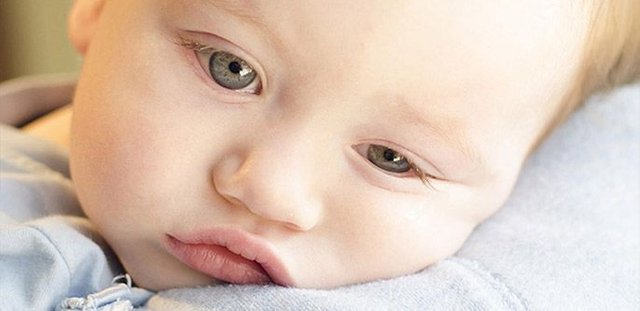
Father, son, dad, kid, boy, parent Infant does not try to imitate sounds and movements others make, such as smiling and laughing, during simple social exchanges.
Early signs of autism in babies and toddlers often involve the absence of normal development, not the presence of abnormal behavior. For example, if your baby does not make eye contact when you are doing things, such as feeding or playing with her, it could be a sign of a problem. In general, babies are interested in faces and will meet a parent or caregiver’s eyes at least some of the time. If your baby or toddler resists eye contact on a regular basis.
Other Sign to watch
He or She doesn't smile at people.
He or She doesn't babble.
He or She doesn't pay attention to new faces.
He or She doesn't turn her head to locate where sounds are coming from.
He or She shows no affection for you.
He or She doesn't laugh or make squealing sounds.
SIGN 3 | By 12 months: Lack of response to name.
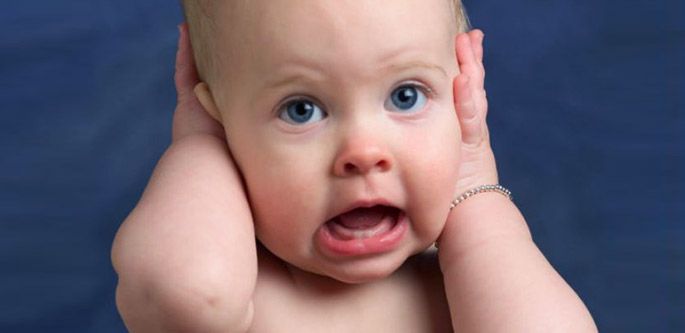
Early signs of autism in babies and toddlers often involve the absence of normal development, not the presence of abnormal behavior. For example, if your baby does not make eye contact when you are doing things, such as feeding or playing with her, it could be a sign of a problem. In general, babies are interested in faces and will meet a parent or caregiver’s eyes at least some of the time. If your baby or toddler resists eye contact on a regular basis.
Kid, baby, boy, child, no hearing, hears no evil An infant should generally respond to his or her name with increasing consistency from 6 to 12 months of age. Lack of responsiveness to one's name is a sign of developmental delay.
Other Sign to watch
He or She doesn't reach for objects.
He or She doesn't smile on her own.
He or She doesn't try to attract attention through actions.
He or She doesn't have any interest in games such as peekaboo.
He or She doesn't crawl.
SIGN 4 By 14 months: No babbling or “baby talk.”
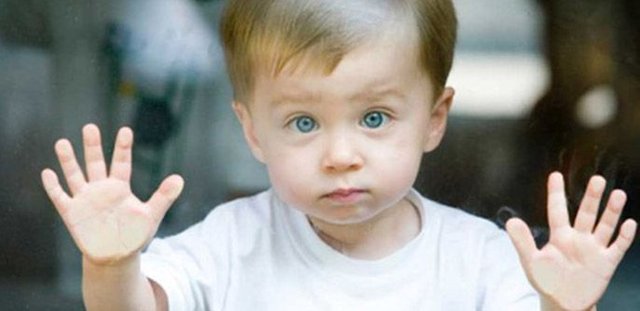
Babbling refers to the sounds that babies make before they begin to talk, such as vowel and consonant combinations like “ba”, “da”, and “gee”. 14 month olds should look at someone while they babble, and take turns babbling with caregivers (like a back-and-forth babbling “conversation”).
Speech delays are not always due to autism. There are several different conditions that can lead to delayed language development. But in many instances, toddlers will compensate for language delays by finding ways to communicate other than using words. For example, babies and toddlers who do not use any words, will make gestures and point to objects. Babies will often lift their arms up to let you know they want to be picked up. This type of nonverbal communication is also part of language development, which children with autism may not display.
Other Sign to watch
He or She doesn't use gestures such as waving or shaking her head.
He or She doesn't point to objects or pictures.
He or She can't stand when supported.
SIGN 5: By 16 months: No back-and-forth gestures, such as pointing, showing, reaching or waving.
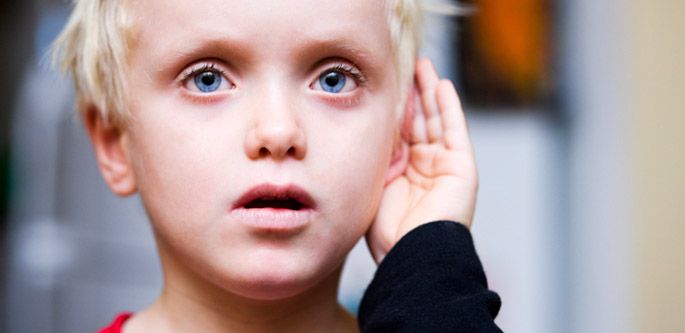
Paradoxically, many researchers now argue that in order to better understand and treat this subgroup of nonverbal people with autism, the field needs to move beyond focusing on speech production. Emerging research suggests that seemingly unrelated issues, such as motor skills and joint attention, may instead be key.
Side to a no spoken words, Some children with autism may be under sensitive to sound or touch. They may not seem to feel pain. For instance, a child with autism may not cry when they fall and obviously cut themselves. The opposite can also be true. Some children are overly sensitive to touch. For example, they may not like the feel of fabric against their skin or certain textures of food.
Other Sign to watch
He or She can't walk.
He or She doesn't speak more than 15 words.
He or She doesn't use two-word sentences.
He or She doesn't seem to know the function of common household objects, such as a telephone, fork, and spoon.
SIGN 6 | By 18 months: No spoken words.

Paradoxically, many researchers now argue that in order to better understand and treat this subgroup of nonverbal people with autism, the field needs to move beyond focusing on speech production. Emerging research suggests that seemingly unrelated issues, such as motor skills and joint attention, may instead be key.
Side to a no spoken words, Some children with autism may be under sensitive to sound or touch. They may not seem to feel pain. For instance, a child with autism may not cry when they fall and obviously cut themselves. The opposite can also be true. Some children are overly sensitive to touch. For example, they may not like the feel of fabric against their skin or certain textures of food.
Other Sign to watch
He or She can't walk.
He or She doesn't speak more than 15 words.
He or She doesn't use two-word sentences.
He or She doesn't seem to know the function of common household objects, such as a telephone, fork, and spoon.
SIGN 7 | By 24 months: No meaningful two-word phrases

That don’t involve imitating or repeating. Not looking at caregivers when communicating or playing with them, not imitating actions like clapping hands, banging on a drum, or people’s speech sounds, Other sign to watch, not looking in the direction of a caregiver’s finger when he or she points to something. For example, a typical 12- month old will look when their mother points to a toy on the shelf
Babies thrive on affection. In fact, research shows babies who do not get cuddled or shown physical affection can have development delays. Although babies and young children do vary on how much snuggling and affection they enjoy, most babies and toddlers do enjoy hugs and affection from their parents. Babies who do not want to be touched may resist cuddles or squirm to get away from a hug. You may also notice your baby is excessively fussy with no known cause and is hard to comfort. This resistance to affection may be due to sensory disorders issues that can accompany autism. Additionally, some children with autism have a difficult time showing expressions of affection and bonding.
Other Sign to watch
He or She doesn't imitate your actions or words.
He or She can't push a wheeled toy.
He or She doesn't follow simple instructions.
SIGN 8 | By any age: Any loss of speech, babbling or social skills.

This type of regression doesn’t happen with all children with autism. But approximately 20% to 50% of parents of children with autism report that their child lost some of his or her skills during the second year, usually around 18 months of age and 24.
Another early sign of autism is the loss of any recently acquired skills. Babies and young children are quickly learning all types of things from language skills to walking. In fact, it may seem your toddler learns several new words every day. But if your child seems to be regressing and losing skills, words or social connections, it could be a red flag.
It’s important to understand if your child displays some of the symptoms above it does not necessarily mean he has autism. There are normal variations in development. Parents should understand children reach developmental milestones at different ages. Comparing every milestone stone with a friend’s baby may cause unnecessary stress.
What should you (parents) do if you are concerned?
If your child has any of the early warning signs of autism, seek help right away so that s/he can receive the intervention s/he needs as early as possible. Despite the fact that we know more about the early signs of autism, the reality is that many children are still not diagnosed until around age four. Trust your instincts if you are concerned. The earlier a child receives the intervention he needs, the better his outcome will be. If you are concerned about your child’s communication development:
Talk to your child’s doctor - the American Academy of Pediatrics recommends that doctors screen children for autism at the 18 and 24 month check-ups. However, if you feel that your child has some of the early signs of autism, speak to your doctor as soon as possible.
See a speech language pathologist - speech-language pathologists are trained to assess communication skills in very young children, including “social communication skills”. These are the types of communication skills affected in autism. Speech-language pathologists are also trained to look for developmental difficulties including autism, and to refer for further assessments with other professionals if needed. Speech-language pathologists are not permitted to diagnose autism.
Do not “wait and see” - if you suspect that your child is slow in his or her social and communication development, seek help as early as possible. Many treatment programs for very young children with autism help the parents learn how to help their child.
The Autism Program for parents of young children with autism, suspected autism, or social communication difficulties. Are program to learn how to interact with their child in ways that improve their child’s communication. By using More Than Words strategies, you can do a lot to promote your child’s development at home.
Source: Peptalkbox - 8 Basic Early Autism Signs in children
Relaunching your site via steemit? Similar as ourselves if so. Following for updates.
Congratulations @peptalkbox! You have completed some achievement on Steemit and have been rewarded with new badge(s) :
Click on any badge to view your own Board of Honor on SteemitBoard.
For more information about SteemitBoard, click here
If you no longer want to receive notifications, reply to this comment with the word
STOPInteresting thoughts
Congratulations @peptalkbox! You have received a personal award!
Click on the badge to view your Board of Honor.
Do not miss the last post from @steemitboard!
Participate in the SteemitBoard World Cup Contest!
Collect World Cup badges and win free SBD
Support the Gold Sponsors of the contest: @good-karma and @lukestokes
Congratulations @peptalkbox! You received a personal award!
You can view your badges on your Steem Board and compare to others on the Steem Ranking
Do not miss the last post from @steemitboard:
Vote for @Steemitboard as a witness to get one more award and increased upvotes!